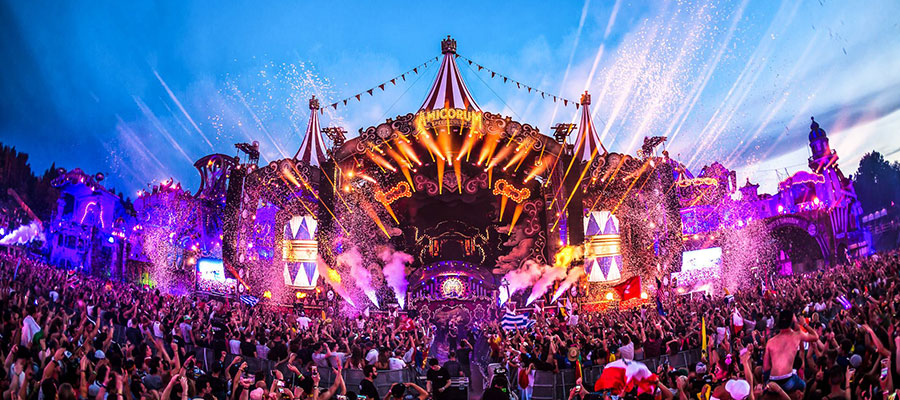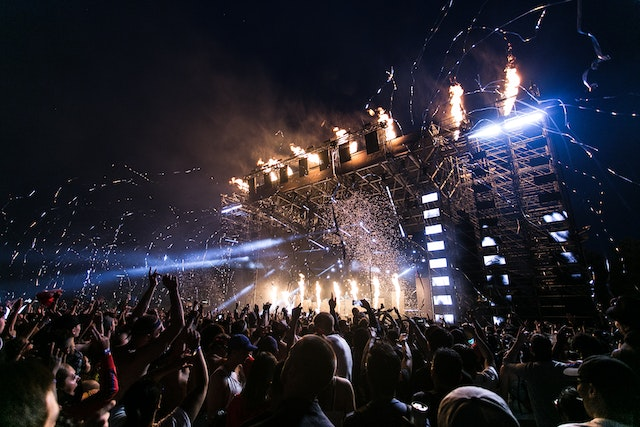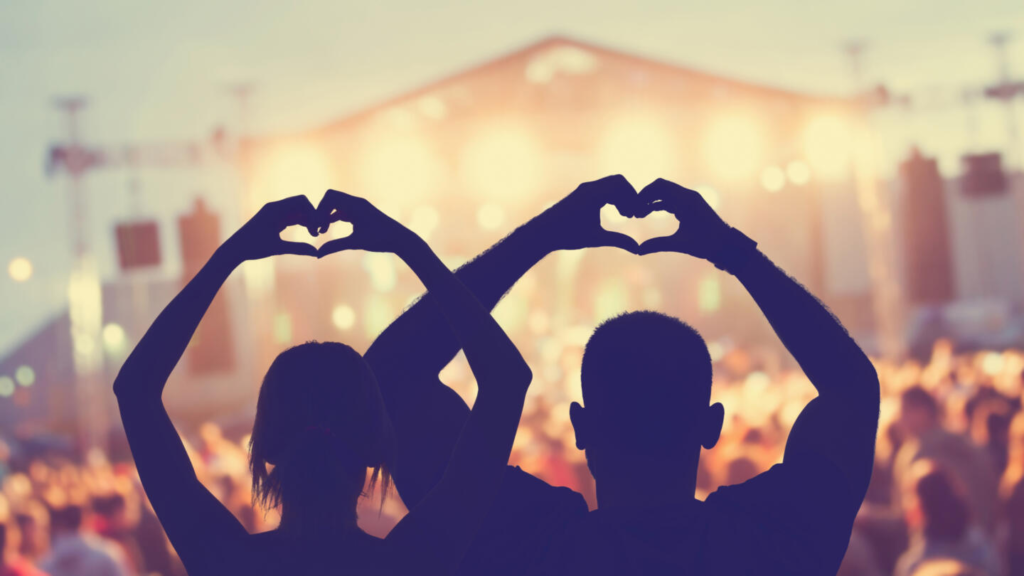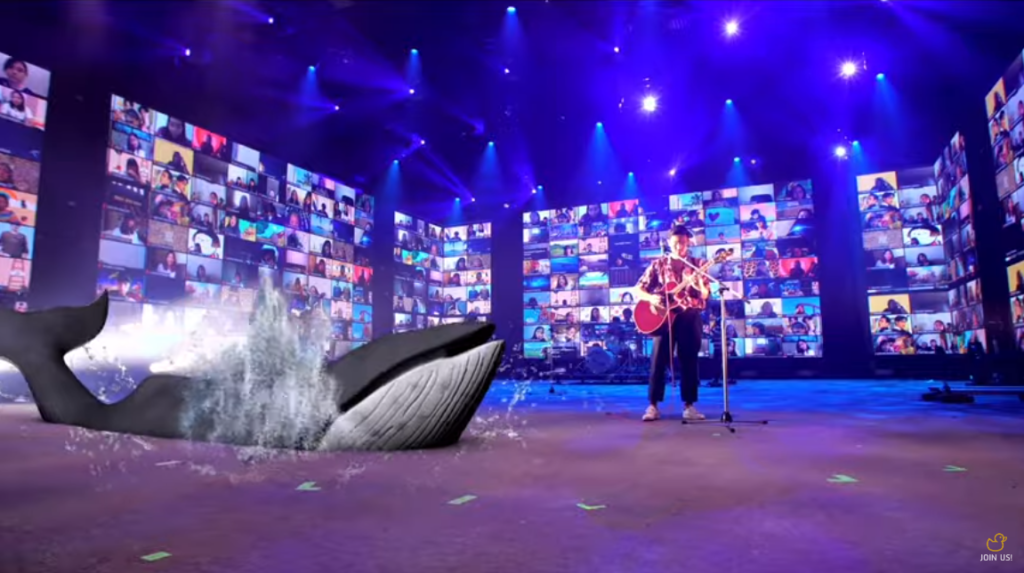Welcome to the electrifying world of music festivals, where melodies mingle with magic and crowds pulse with energy. As we dive into the evolution of music festivals, fasten your seatbelts for a journey through time, trends, and tantalizing tunes. From the humble beginnings of Woodstock to the colossal stages of Coachella, join us as we explore what’s new in 2024 and beyond. Get ready to discover how these sonic celebrations have transformed over the years and what exciting innovations await in the realm of modern music events. Let’s tune in!

The History of Music Festivals
Step back in time to the roots of music festivals, where melodies first met open fields and like-minded souls gathered to groove under the sun. The 1960s marked a pivotal era with iconic events like Woodstock setting the stage for a cultural revolution. These gatherings were more than just concerts; they were communal experiences that defined a generation.
As the years rolled on, music festivals evolved into epic showcases of sound and spectacle. From Glastonbury in England to Tomorrowland in Belgium, these global phenomena attracted thousands, if not millions, of eager festival-goers seeking an escape from the mundane. Artists spanning genres lit up stages while fans danced until dawn amidst a sea of neon lights and confetti.
The history of music festivals is a tapestry woven with threads of passion, rebellion, and pure sonic bliss. Each event leaving its mark on both attendees and performers alike as they journeyed through this ever-evolving landscape of musical euphoria.
The Rise of the Mega-Festival
Music festivals have come a long way since their humble beginnings. The rise of the mega-festival marks a significant shift in the festival landscape, with events attracting hundreds of thousands of attendees from around the globe.
These massive gatherings offer an unparalleled experience, boasting larger-than-life stages, top-tier production value, and a lineup of superstar artists that can rival any stadium concert. Mega-festivals like Coachella, Glastonbury, and Tomorrowland have become cultural phenomena in their own right, transcending mere music events to become must-attend destinations for music lovers everywhere.
With multiple stages featuring diverse genres of music simultaneously, attendees are spoiled for choice as they navigate sprawling festival grounds. The scale of these events allows for innovative art installations, immersive experiences, and collaborations with brands that elevate the festival experience to new heights.
The rise of mega-festivals has not been without its challenges, from logistical hurdles to environmental concerns. However, organizers are increasingly incorporating sustainable practices into their planning to minimize their ecological footprint and ensure a positive impact on local communities.
The Impact of Technology on Music Festivals
Technology has undoubtedly transformed the landscape of music festivals, offering attendees an immersive and interactive experience like never before. From cashless payment systems to RFID wristbands for entry, technology has streamlined processes and enhanced convenience for festival-goers.
Innovations such as virtual reality (VR) sets and augmented reality (AR) experiences have brought a new dimension to performances, allowing fans to feel like they are front row at any stage. Additionally, live streaming platforms have made it possible for music lovers worldwide to tune in to their favorite festivals in real-time from the comfort of their homes.

Furthermore, social media integration has revolutionized how festivals are marketed and communicated with audiences, creating buzz and excitement leading up to the event. With technology constantly evolving, we can expect even more groundbreaking advancements shaping the future of music festivals in 2024 and beyond.
Sustainability and Eco-Friendly Practices at Festivals
As music festivals continue to evolve, a growing focus on sustainability and eco-friendly practices has become increasingly prominent. Festival organizers are prioritizing reducing waste, promoting recycling initiatives, and implementing environmentally conscious strategies to minimize their carbon footprint.
From reusable cups and water bottles to biodegradable food containers, festivals are finding creative ways to cut down on single-use plastics. Many events are also incorporating solar-powered stages and encouraging attendees to carpool or use public transportation to reduce emissions.
Moreover, some festivals are partnering with local environmental organizations to raise awareness about conservation efforts and educate festival-goers about the importance of preserving our planet. By promoting sustainable practices, music festivals are not only providing unforgettable experiences for attendees but also making a positive impact on the environment for future generations.
In 2024 and beyond, we can expect even more innovative approaches towards sustainability at music festivals as the industry continues to prioritize eco-conscious initiatives.
Diversity and Inclusivity in Festival Lineups
As music festivals continue to evolve, there has been a noticeable shift towards promoting diversity and inclusivity in festival lineups. Gone are the days when festivals featured predominantly male, white headliners. Now, organizers are making conscious efforts to showcase a more diverse range of artists from various backgrounds and genres.
Attendees are no longer satisfied with seeing the same type of performers on stage. They crave representation and authenticity in the lineup, celebrating artists of different ethnicities, genders, sexual orientations, and musical styles. This push for diversity not only reflects changing societal norms but also creates a more vibrant and dynamic festival experience for all.

By including artists from marginalized communities, festivals can offer a platform for underrepresented voices to be heard and appreciated by a wider audience. This commitment to diversity not only enhances the cultural richness of music events but also fosters a sense of belonging and unity among attendees from all walks of life.
New Trends in Music Festival Culture
Music festival culture is constantly evolving, embracing new trends that shape the way we experience live music. One of the emerging trends in 2024 is the focus on immersive experiences, where attendees are fully immersed in interactive art installations and virtual reality activities.
Another trend gaining popularity is wellness programming at festivals, offering yoga classes, meditation sessions, and wellness workshops to promote holistic well-being among festival-goers. This shift towards mindfulness reflects a growing awareness of mental health in the music community.
Furthermore, sustainability initiatives have become integral to festival culture, with events implementing eco-friendly practices such as composting stations, reusable cups, and solar-powered stages. Attendees are more conscious about their carbon footprint and expect festivals to prioritize environmental responsibility.
In addition, inclusivity and diversity are top priorities for festivals in 2024. Organizers are making concerted efforts to book diverse lineups representing a wide range of genres and artists from different backgrounds. Celebrating diversity enriches the overall festival experience for everyone involved.
These new trends signal an exciting evolution in music festival culture as we move forward into 2024 and beyond.
Virtual and Hybrid Festivals in the Age of COVID-19
In the wake of the global pandemic, music festivals have adapted to the new normal by embracing virtual and hybrid formats. These innovative approaches have allowed festival-goers to experience live music from the comfort of their own homes while staying safe.
Virtual festivals offer a unique opportunity for fans to enjoy performances from artists around the world without having to travel long distances. With just a click of a button, attendees can immerse themselves in virtual stages and interactive experiences.

Hybrid events combine elements of both physical and online formats, providing a dynamic blend of in-person interactions and virtual offerings. This flexibility caters to diverse audiences, offering options for those who prefer traditional festival settings as well as those who enjoy digital convenience.
As technology continues to advance, we can expect virtual and hybrid festivals to become even more sophisticated, blurring the lines between physical and digital realms.
The Future of Music Festivals: What to Expect in 2024 and Beyond
As we look ahead to 2024 and beyond, the future of music festivals is brimming with innovation and excitement. With technology playing a more significant role than ever before, attendees can expect immersive experiences through virtual reality, augmented reality, and interactive installations.
Sustainability will continue to be a key focus, with festivals implementing eco-friendly practices such as compostable materials, renewable energy sources, and zero-waste initiatives. Inclusivity in festival lineups will also evolve further, celebrating diverse artists from various backgrounds.
New trends like pop-up micro-festivals in unconventional locations or themed niche festivals catering to specific genres will offer unique experiences for attendees. Hybrid events that seamlessly blend physical gatherings with online components will provide access to global audiences.
The evolution of music festivals in 2024 promises to push boundaries creatively and technologically while prioritizing sustainability and diversity for an unforgettable experience that resonates with music lovers worldwide.
Introduction to the Evolution of Music Festivals
Welcome to the world of music festivals, where the beats are loud, and the vibes are electric. The evolution of these gatherings has been a journey filled with innovation and creativity over the years.
From humble beginnings in the 1960s with events like Woodstock paving the way for a cultural revolution, music festivals have grown into massive spectacles drawing thousands of attendees from around the globe. As technology advanced, so did the festival experience, with elaborate stages, light shows, and sound systems becoming standard fare.
In recent years, there has been a shift towards more sustainable practices and eco-friendly initiatives at festivals. Organizers are increasingly mindful of their environmental impact and are implementing measures to reduce waste and promote conservation.
Diversity and inclusivity have also become key focal points in festival lineups, showcasing a wide range of musical genres and artists from different backgrounds. This push for representation has brought about a more inclusive atmosphere where everyone can feel welcome.
As we look ahead to 2024 and beyond, one thing is certain – music festivals will continue to evolve as they adapt to changing times and embrace new technologies that enhance the overall experience for attendees. Join us on this exciting journey through the world of modern music festivals!
Conclusion: The Future of Music Festivals in 2024
As we look ahead to the future of music festivals in 2024 and beyond, one thing is clear: the evolution of these events shows no signs of slowing down. With advancements in technology, a focus on sustainability, an emphasis on diversity and inclusivity, and the adaptation to virtual and hybrid formats, music festivals continue to innovate and provide unforgettable experiences for attendees.
In 2024, we can expect to see even more exciting developments in festival culture. From cutting-edge technology enhancing the overall experience to new trends shaping lineups and performances, music festivals are set to push boundaries and redefine live entertainment as we know it.
So whether you’re a die-hard festival-goer or someone looking to attend their first event, keep an eye out for what’s in store for music festivals in 2024 – it’s bound to be a captivating journey filled with groundbreaking innovations and unforgettable moments that will shape the future of live music experiences for years to come.
For more such content, keep visiting QAWire
